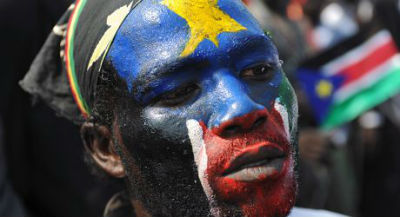 By Deng Mangok Ayuel
By Deng Mangok Ayuel
If you put the federal government in charge of the Sahara Desert, there’d be a shortage of sand within 5 years – Milton Friedman
June 7, 2014 (SSNA) — The individualistic and ethnical dynamic, political impatience and resistance to political changes within the system of government by the same leaders who are now hungry for federal system of government, and the slogan, we are the ‘elites’ of SPLM, shall not make us a peaceful nation than a federal government.
If we are vulnerable to our ethnical and political deeds, is it easy to get federalize or have a real functional system of government we deserve in South Sudan? And who are the ones calling for federalism? The old boys who initiated and implemented kokora in 1980s? Same people in the same government who corruptly tainted our resources for years?
Our problem in South Sudan is not about the system of government – call it absolutism, abstractionism, centralism, federalism, Afrocentrism, or whatever. The main issue is the nature of our politicians, political consortium within the same party and individuals’ powers in political game. It’s also about the competition within the ruling party, greed for leadership by political subordinates and tribalism.
Federal government system instigated by the same people who have run the government of our country like their property could turn the entire country into one colossal political camp for dignitaries, believe me. The so-called federal system, if allowed shall be the government of people for the leaders and by the leaders because they like it. They know what they will gain from it. I don’t deter the principles of federalism but why was it initiated by kokoratists and renegades in the country?
Will federal system stop us from recruiting more white army and manthiang-anyor across the states in South Sudan?
This government shouldn’t row its people like a boat in the Nile. People are starving to death in the villages and camps, yet our people kept preaching what shall benefit them in the long run. I am just curious. Why do we need a federal government? And why can’t politicians allow ordinary citizens to decide for the system of government which is good for them?
I partially agree with Bahr el Ghazal youths who opposed federal system of government. These individuals, who called themselves Bahr el Ghazal youths are encouraged to individualize their political issues than generalizing the youths whose ideas, grievances in the states of greatest Bahr el Ghazal have never been listened to for years.
According to the youths, federal system of government will lead to insecurity or increase rebellion in the country. The youth has also stated that federal government has failed in Africa {Nigeria, Ethiopia} and has been the key factor affecting the federal system in Africa.
However, federal system shouldn’t be political dogmatism in the baby nation. And who are federalists – uncle Konga, Equatoria MPs and Dr Machar’s political camp?
When there is a crocodile in the river, nobody is comfortable whilst swimming. I don’t believe federal system didn’t work in Nigeria and Ethiopia, oppositely making it inevitable in South Sudan. Federal system of government shall work in South Sudan after sometimes when the country is politically stable.
Federal system is not kokora but can be kokoratize if initiated by kokoratists. The call for federal government has never been initiated by Equatorians alone as put by Jacob K. Lupai in his article titled, federal system of government in South Sudan not kokora.
There is no pastor who is supposed to claim that Jesus Christ has appeared to him in a dream, that he is the only one preaching the Bible well than million of preachers in the country.
If kokora was started by Equatorians in Equatoria and badly affected people from Bhar el Ghazal and Upper Nile, thereafter, will federal government work well under Equatorians initiatives?
I urge those who are seriously whisking up for federal system of government to give it a pause. Federal system which was proposed and opposed may cause another problem among the youths in the country when political opinions daunt and repel regionally.
Deng Mangok Ayuel is a South Sudanese blogger and humanitarian worker, currently based in Unity State. He can be reached via [email protected].

